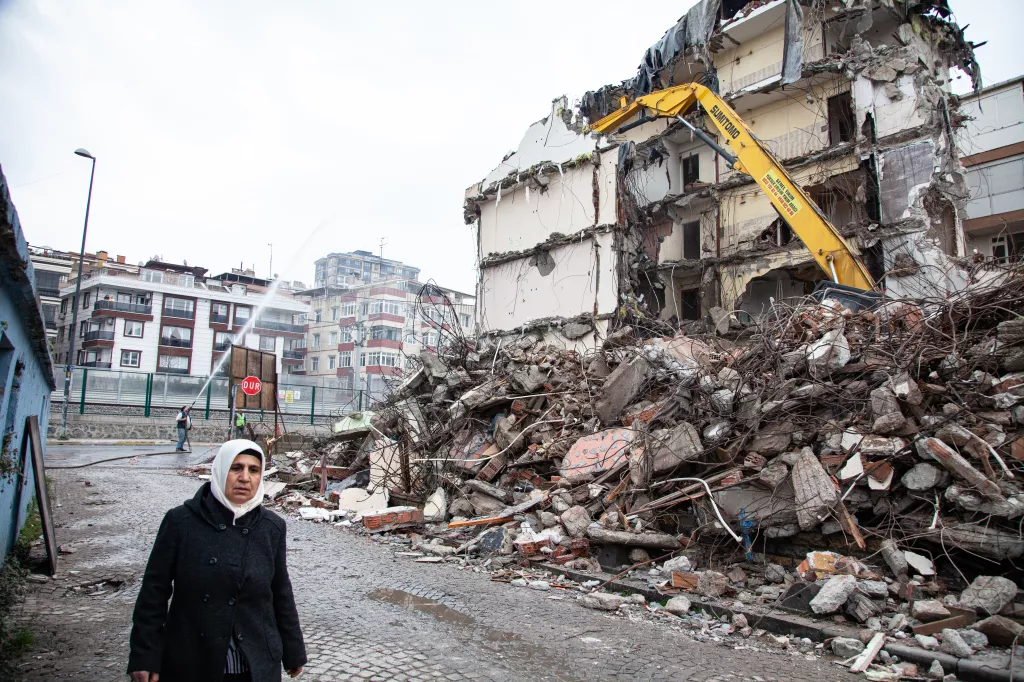
ISTANBUL—From his second-story apartment on the western edge of Istanbul, Ismail Ciftsuren watched workers file past his window toward the building next door.
Demolition was about to start at the Cinar Residence, a complex of 13 apartment buildings, each six stories tall.
His building — his family’s home for three decades — was set to be knocked down in late March, leaving just over a month to find somewhere else to live.

As a nonprofit journalism organization, we depend on your support to fund more than 170 reporting projects every year on critical global and local issues. Donate any amount today to become a Pulitzer Center Champion and receive exclusive benefits!
“The life here is finished,” Ciftsuren, 74, declared.
His family was caught in a double crisis: Istanbul, much like Los Angeles, is facing a severe housing shortage and extreme earthquake risk.
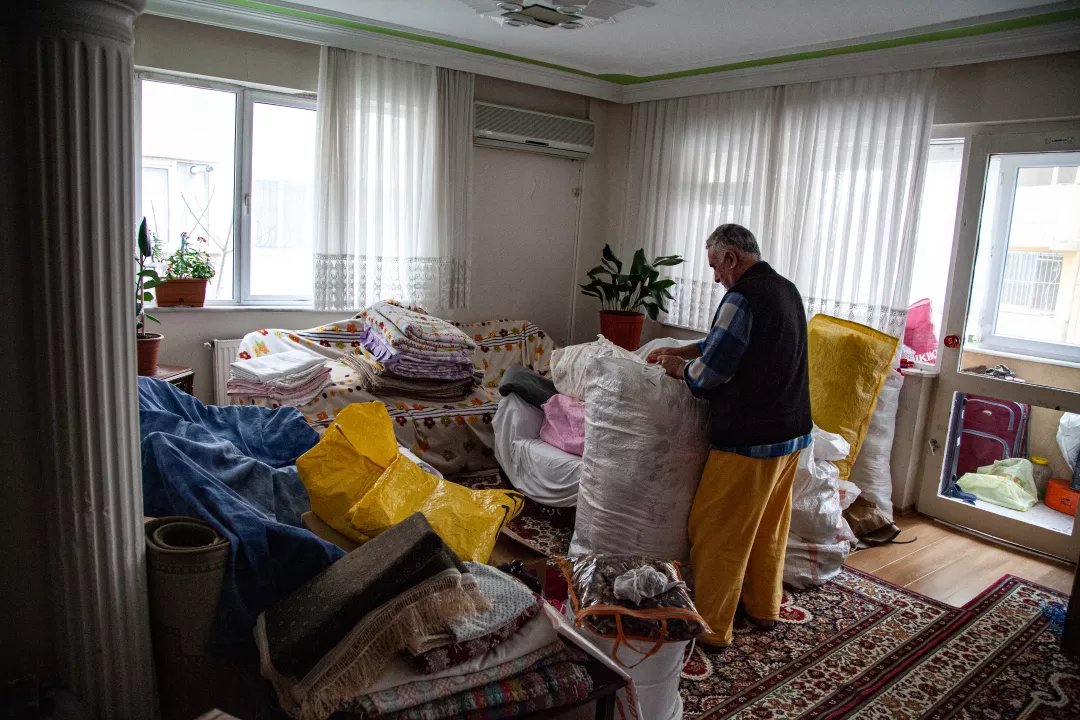
The family worried about living in a building deemed unsafe in temblors. But the more immediate fear was of being forced to find a new home in a city where population growth and lack of land for building have sent real estate prices and rents soaring.
They and many of their neighbors had opposed a private developer’s plan to replace their complex with luxury high-rises, continuing to resist even after a massive earthquake killed tens of thousands of people on the other side of the country. But they lost.
The sky was gray and it was drizzling as bulldozers arrived, the conclusion of a nearly yearlong legal battle.
Ciftsuren paced from room to room as the sounds of demolition from the building next door rolled through his floorboards and rattled his wife‘s keepsakes on the mantel. Some neighbors were already packing up, dragging suitcases over walkways littered with broken glass.
But with nowhere else to go, Ciftsuren and his family had little choice but to stay put as long as they could.
“If we could, we would be out of here tomorrow,” he said.
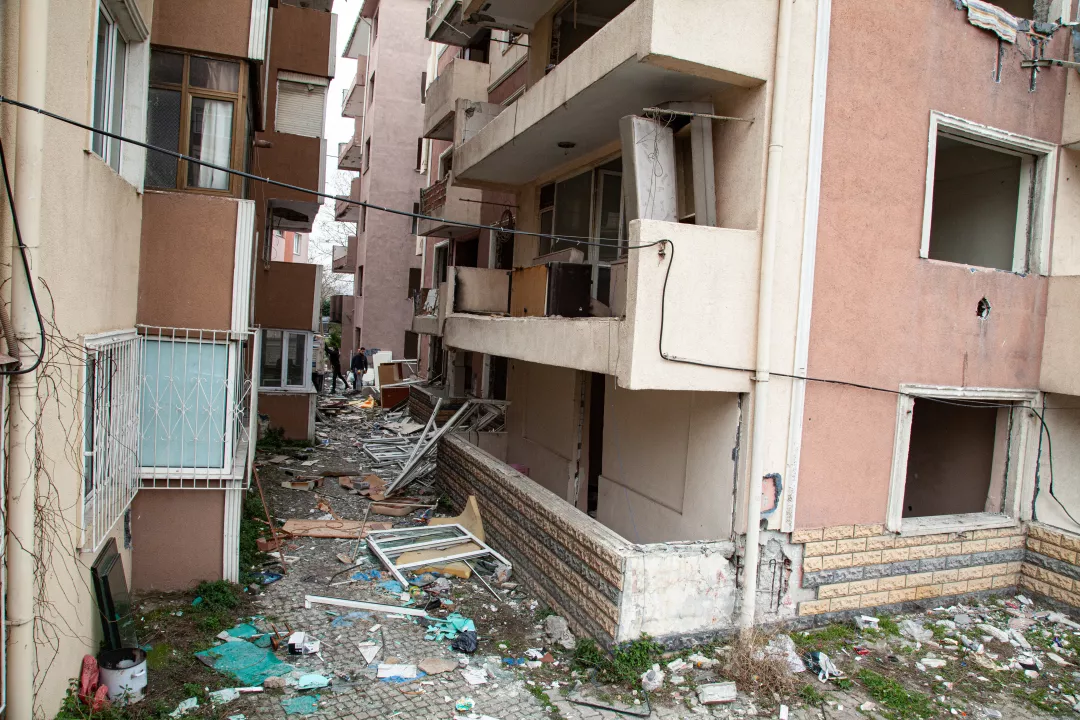
The population of Istanbul was 8 million in 1996, the year Ciftsuren and his wife, Bediye, arrived from their impoverished hometown of Mardin, 680 miles to the east, and moved into their airy two-bedroom corner apartment.
“It was a green area, calm,” said Ciftsuren, who toiled for decades in manual labor jobs and spent his entire savings to buy the apartment for just over $14,000.
Today, 16 million people live in the city, and the neighborhood, perched on the eastern shore of Lake Kucukcekmece, is rapidly gentrifying as older buildings are torn down and replaced with gleaming new ones.
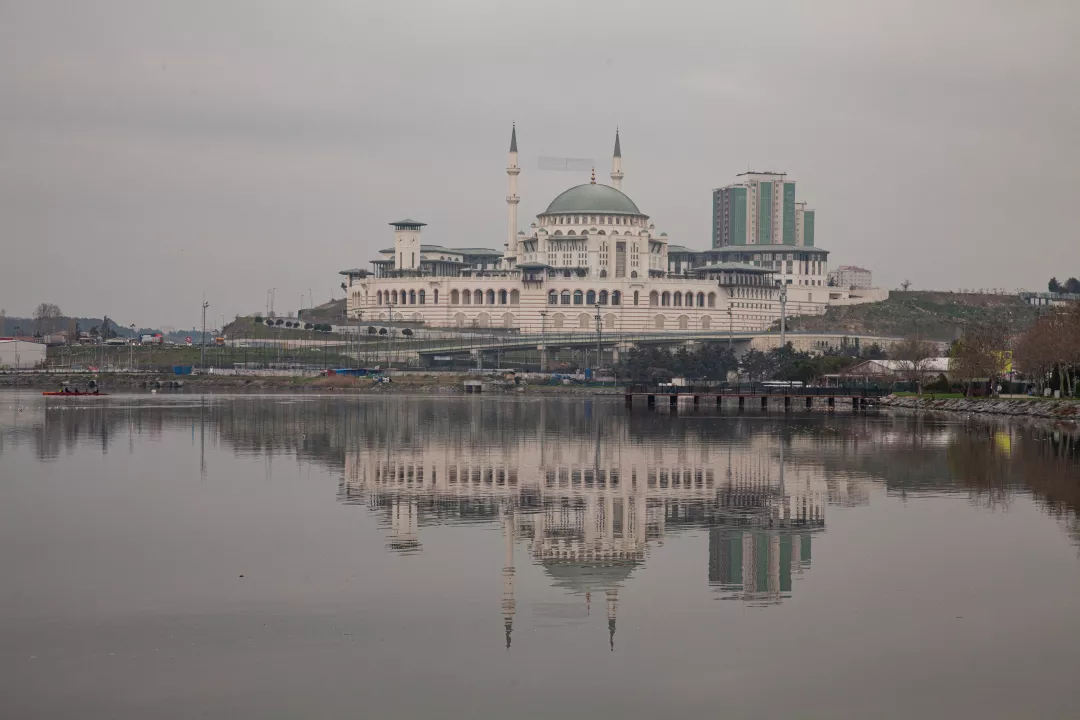
Now Ciftsuren and his wife, also 74, scrape by on his government pension while thanking God for having made them homeowners long ago.
Ciftsuren first heard that developers were circling Cinar Residence seven years ago, but the apartment owners repeatedly voted against their offers. Then in May last year, the complex failed an earthquake test requested by one of its residents.
Under the disaster zoning law, that meant the buildings either had to be fortified or torn down.
With little financing for retrofitting, the owners began considering offers from developers, including Sega Construction, a local firm that proposed replacing the complex with five 15-floor towers holding more than 500 units. When the project was complete, each of the 240 displaced owners would receive a new apartment, and Sega would make its money by selling the rest.
A total of 200 homeowners voted in favor of the plan — well above the two-thirds required by law for the project to proceed.
Some of the holdouts took the developer to court, claiming that the earthquake test was bogus and that the company was in cahoots with some of their neighbors. The court halted the plans so it could examine the claims.
The Ciftsurens did not join the lawsuit — they didn’t have the money to contribute for the lawyer — but they opposed redevelopment.
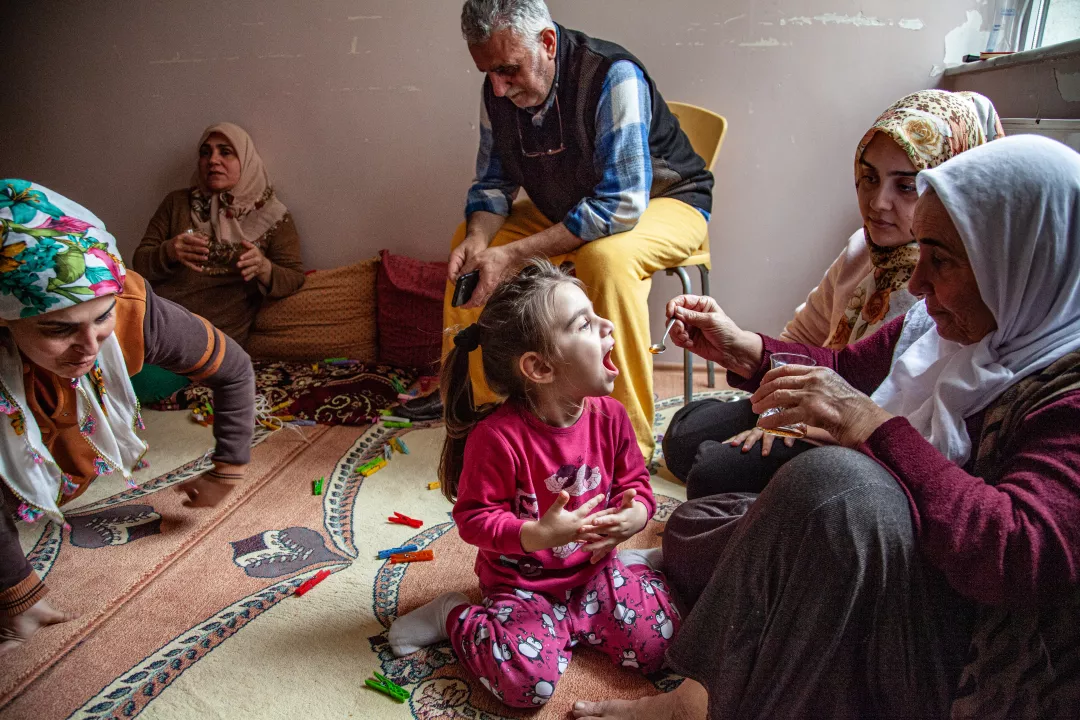
Though they would receive a new apartment, the monthly fees would be far beyond what they could afford. More importantly, redevelopment would permanently displace renters, including two of their children, who lived in separate apartments upstairs with their own families.
“These buildings are strong!” Ciftsuren said. “One time a handyman said he couldn’t drill into the wall, it is so strong. I have no idea why the engineers have decided it’s dangerous.”
Everyone in the complex was awaiting a court ruling in early February when a magnitude 7.8 earthquake struck southern Turkey and northern Syria, leveling cities and killing more than 50,000 people.
The epicenter was 600 miles from Istanbul, which suffered no damage. But the scenes of devastation set off a panic. The city sits on a major fault line, and with many buildings constructed to subpar standards, more than a quarter of residents are thought to be at risk of sustaining severe damage to their homes in a major quake.
The city has since received more than 100,000 requests for inspections. Scores of buildings have already been condemned as residents scramble for new places to live and developers angle for opportunities to build.
Television news crews soon arrived at Cinar Residence, reporting that the complex was an example of the scores of death-trap buildings across the city.
One of the Ciftsurens’ daughters, Nesime, who lived in another complex nearby, accused the pro-redevelopment neighbors of calling the media.
“They used it as propaganda,” she said.
On Feb. 23, the court ruled that the demolition should proceed, concluding from an expert witness report that the earthquake test had been valid.
That was the day the bulldozers arrived.
Over the last two years, average rents in Istanbul have more than quintupled amid competition from newly arrived exiles from Syria and Afghanistan and more recently from Russia and Ukraine.
Now thousands of people displaced by the Feb. 6 earthquake were pouring into the city.
Sega was offering each apartment owner at Cinar Residence $115 a month to cover rental costs during construction. But when Ciftsuren searched online for places nearby, the cheapest he could find was $310 — his entire pension.
The developer offered to buy him out for $100,000, but that was far too little for an apartment anywhere in Istanbul.
Ciftsuren and his wife considered returning to Mardin, where houses were far cheaper, but Bediye could not bear the thought of leaving her family.
As the clock ticked, the demolition crew stripped the windows and doors from other buildings. The complex was now mostly deserted. A handwritten sign warned off thieves.
On March 20, the Ciftsurens learned that demolition of their building would begin in seven days. Ciftsuren packed their rugs into huge plastic sacks and his wife folded their clothes into suitcases.
“They told us not to remove the doors,” she said. “But these doors are ours, and they’re good. I want to take them with me.”
The head of the complex’s management committee, Semsi Acik, was perplexed as to why some residents were still holding out.
“They must be stupid; why are they still refusing?” he told a foreman who had swung by his office to take a break.
Soon the Ciftsurens and their children were the only ones left in their building. Bediye managed to distract herself with a visit from her grandchildren — until she looked out the window.
“Everything is gone, everything destroyed,” she cried.
Then four days before the scheduled demolition of his building, Ciftsuren found a new listing online: a two-bedroom house just down the road. It was $520 a month, but it was big enough that he figured his daughter Elif and her husband — who were being displaced from the Cinar Residence — could move in and help share the rent.
“There’s a lot of interest,” the landlord told him. “I don’t know. I’ve got a family from Kahramanmaras“ — a city leveled in the earthquake — “asking about it too.”
The landlord appeared to be holding out for more money, but after some back and forth, he said the Ciftsurens could have the house.
On Sunday, March 26, they woke up before dawn.
Bediye wept as she watched her life’s possessions emptying from their home. All of it looked so small when it was packed up, while her home seemed huge and cold. They could not take the doors, Ciftsuren told her gently. They had nowhere to store them.
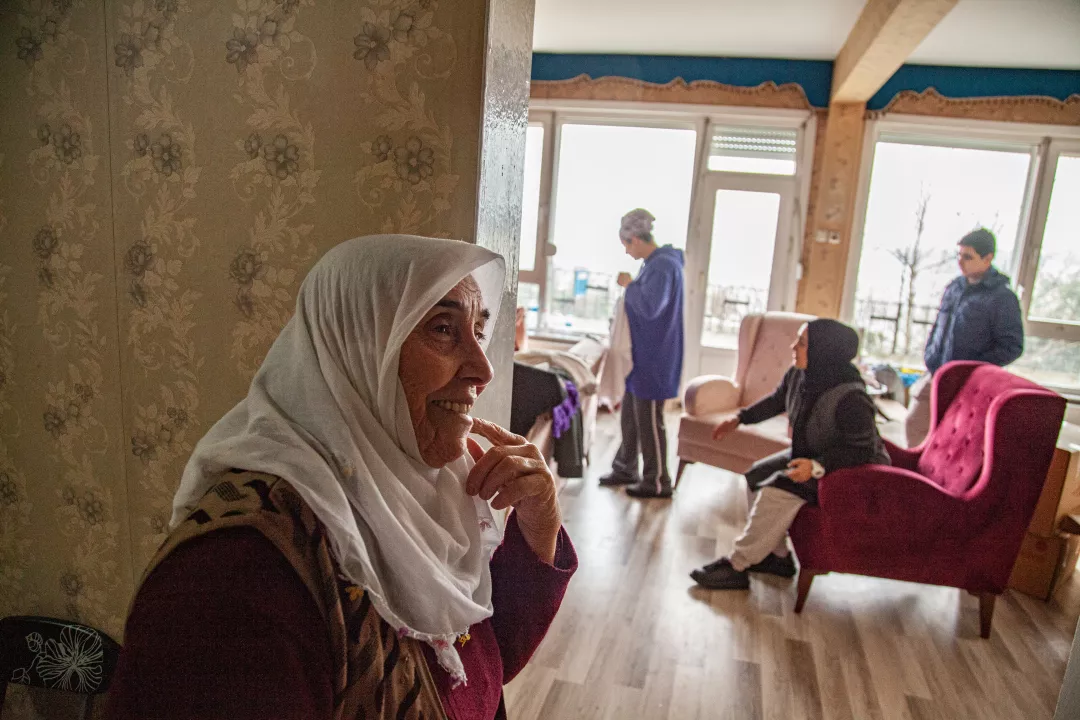
Several other buildings in the area had also been condemned, and local moving companies had hiked their rates. The Ciftsurens gathered their extended family and moved everything themselves, the men and their furniture navigating a bend in the flight of stairs while the women pulled suitcases.
They struggled down the narrow road, back and forth four times to their new home less than a quarter of a mile away.
By lunchtime their old apartment was empty, and Bediye closed the door for the last time.
Ciftsuren took a last look around the place where he had spent a third of his life. “I won’t be back here again,” he said.
His plan was to sell the new apartment they would receive and use the money to buy somewhere else in the city. Their children were being priced out everywhere in Istanbul and were considering cheaper cities.
For now, the family had little choice but to try to settle into the rental.
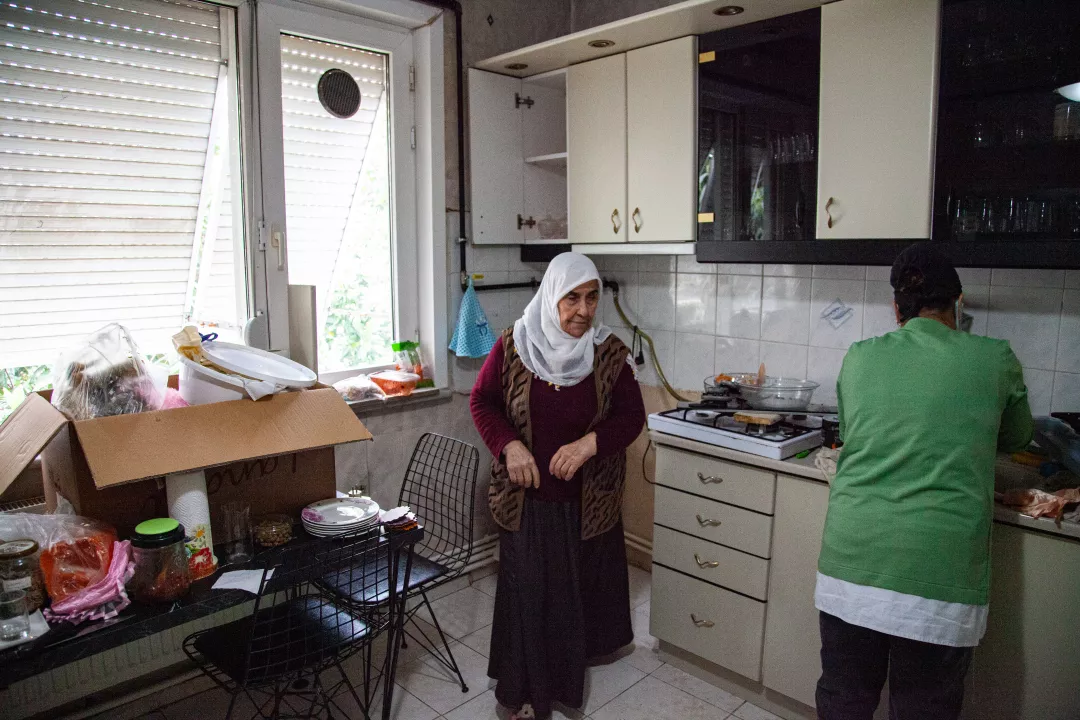
The old two-story house was one of the last of its kind in the neighborhood, sandwiched between new towers with signs advertising units for sale. The wallpaper was peeling and cracks in the walls were caked with dirt.
With some care it could be brought to life, Bediye thought. She could serve tea once the kitchen was cleaned, and there was a small frontyard where her grandchildren could play.
“When it is finished, it will be like a different place,” she said.
She did her best to put aside another worry. The previous tenants had moved out and left Istanbul after the February quake because they feared this house was also unsafe. The Ciftsurens knew that it was also likely to fail a building test — and that if that happened, they would have to leave again.











